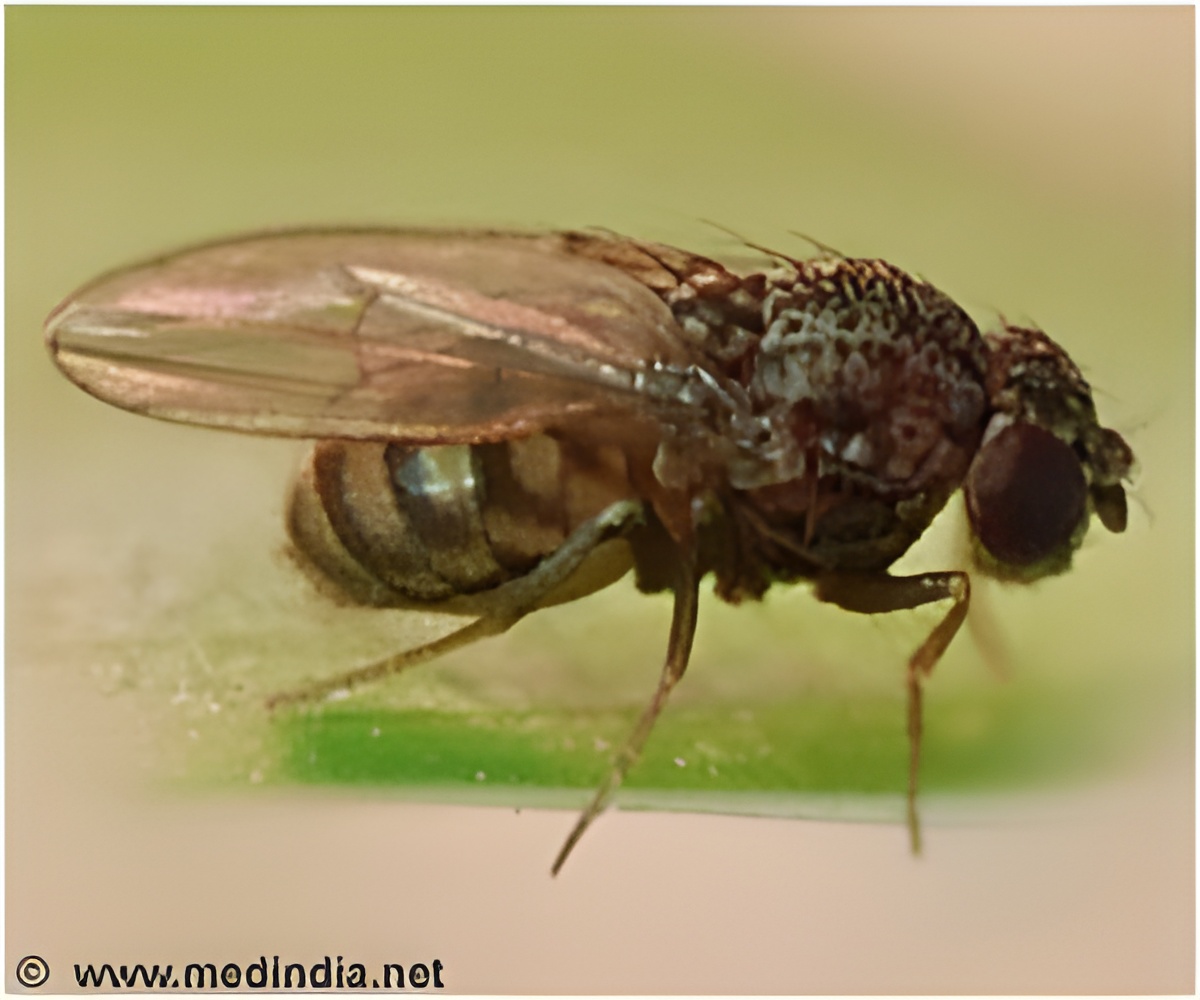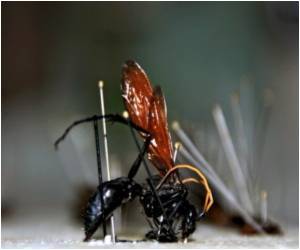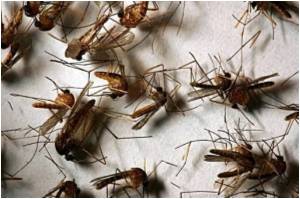In decorated crickets, an edible present, known as a nuptial gift, is offered to the female during mating in the form of a large gelatinous ball of protein.

Scientists believe that some of the proteins contained in the nuptial gift prevent digestive enzymes in the female's gut from breaking down other active proteins in the gift. These protected proteins may then alter her reproductive physiology and make her less likely to mate with further males, according to researchers.
"It has long been thought that the purpose of the edible love gift was so that male crickets could be sure their sperm wouldn't be eaten by the female. However our study suggests that the story may actually be more complex and that the gift not only functions to feed the female but it may also affect her behavior," said professor Richard Ffrench-Constant from the University of Exeter.
"It's a bit like the old cliche of offering a box of chocolates on the understanding that your sperm will be met by a receptive reproductive system."
The researchers analyzed the proteins contained in the nuptial gift to determine their molecular structure and function. They found that not only are some of the proteins protected from being broken down by enzymes, but they bear a striking resemblance to growth factor proteins known to exist in other insects.
This similarity suggests that the proteins could promote cell growth and development in target tissue within the female's body and as a result influence female reproductive behavior.
Advertisement
In the decorated cricket, the female detaches the gelatinous nuptial gift, which is made by the male, from the sperm capsule and feasts during sperm transfer. When she has finished eating the gift she then consumes the sperm capsule itself and in doing so terminates sperm transfer.
Advertisement
Future research will investigate the exact role that the proteins in the nuptial gift may play in altering the reproductive physiology of the female cricket.
The study was published in the journal PLOS ONE.
Source-IANS












